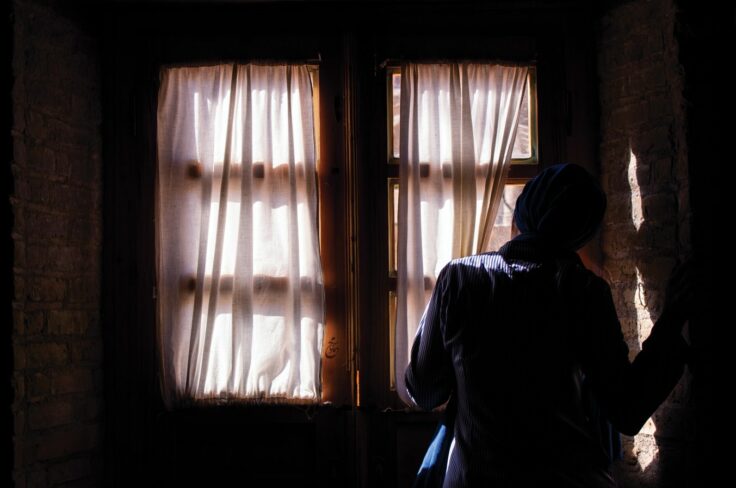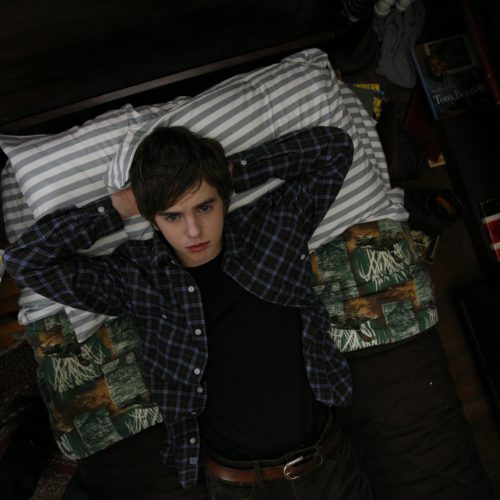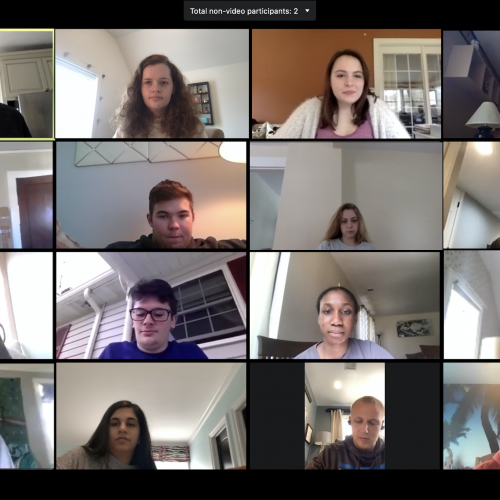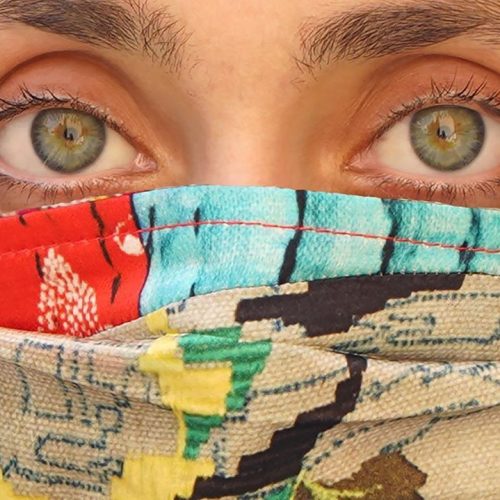After millions in China have been forced into quarantine since January, many countries across the entire world are now asking their inhabitants to stay at home as well.
Health experts and doctors have demonstrated how “social distancing” and “self-isolation” are the best ways to “flatten the curve” and keep the number of patients in hospital at a manageable level. Although many of us have agreed that solidarity and sacrifice are our only hope in combatting the pandemic; in societies and communities where loneliness is already a serious issue, the fear of emotional isolation and uncertainty is real and daunting.
But through these dire times, we’re also realising that it is somehow possible to be alone together and find new ways of showing up for each other.
So how are young Arabs coping? We caught up with six of them to find out.
Yossra, 19, Tunisian
“This is immensely affecting my mental health because being in school and surrounded by different people helps a great deal in soothing my depression. I have now resorted to sleeping a lot, while I should be up and studying because I’d rather miss out on the many empty hours of the day and deal with less panic attacks than be reminded of my loneliness and pain.”
Nouf, 21, Kuwaiti
“The whole situation has been really overwhelming. I live in London, where pubs and restaurants were still open just a couple of days ago. Seeing people acting totally normal really broke my heart. And seeing people stockpiling was just the icing on the cake. I stayed home close to tears for days, feeling heartbroken, disgusted and helpless. I’ve now decided to focus the people that are meaningful to me and will cheer me up, not bring me down. I have started a book club and regularly share film lists online. I think it’s a great opportunity to live online in a healthier way.”
Nesrine, 24, Algerian
“I started social distancing a few days before it started becoming an obligation in France. I didn’t want to risk infecting my parents or participate in the spreading so I decided to stay in my apartment and not go back to my parents’ home in another city. As cliché as it sounds, I bought fresh herbs (mint and coriander) to conserve them during the upcoming weeks and also started cleaning every corner of my apartment without even realizing. I’ve also been listening to all the Chaabi vinyl records I inherited from my grandfather. Ghorba (exile in English) is a recurrent theme in this genre, which I think has helped bring me solace. As unexpected this situation is, I remember it’s nothing compared to what my people (and other people in the world) have to go through when they’re being quarantined.”
Anis, 25, Algerian
“I’ve been at home with my three flatmates for five days already. But it hasn’t been affecting me negatively for now. I have decided to use this time to be introspective. I want to focus on promoting positive energy and, being creative by reading books and disrupt the Netflix on the sofa routine. I might actually start working out. I’m more affected by the distance from my family in Algeria. I overthink and stress about how things will turn out in North Africa and if the civil society and governments will really be responsible and take strict action. But I refuse to be negative, we should stay strong and reveal the humanity within us during this period.”
Farah, 26, Palestinian
“I live in a small place in Paris so I decide to stay with my boyfriend’s family who I don’t know well at all. Whilst I don’t see us being different, they have opposed to us on the grounds of “cultural difference”. It’s funny and beautiful to see how people are in survival mode—they become more real. It’s not an easy space mentally, but hey, it’s not for anyone!”
Yassine, 21, Moroccan
“Having been in Amman since January, the issues related to the rapid spread of coronavirus did not seem to affect us from here: it was almost like watching a creepy black mirror episode but from the outside in.
At that point, locals seemed relatively unbothered with whatever was going until their racist bias would kick once they would encounter tourists from basically any Asian background or hear any strong and heavy Italian/French accents – something that I was directly affected by. I started noticing that behaviours would alter regarding the language I would be speaking and all of a sudden asking for basic commodities would now depend on how I would identify ethnically. As a French national from Moroccan descent, my North-African status would always be welcomed by warm and kind gestures whereas my European facet would only be met with panicky and almost repulsive attitudes. Although the above mentioned manners are disturbing and bizarre, I still believe that the ongoing events have somewhat introduced the concept of what it is like to be discriminated against your skin colour, language or country of origin to white europeans whilst also revealing the extent to which people are willing to go when desperate times call for desperate measures: something which refugees have been deeply suffering from in this last decade.”









